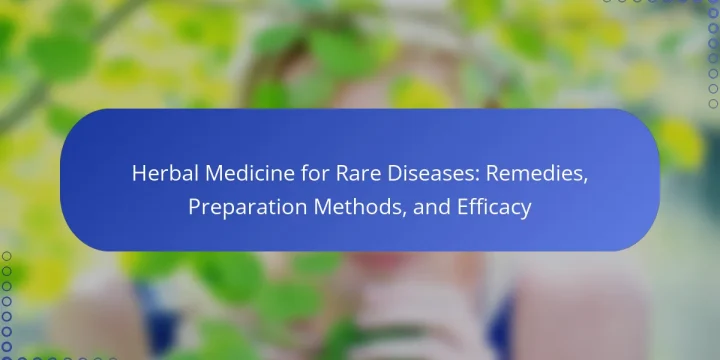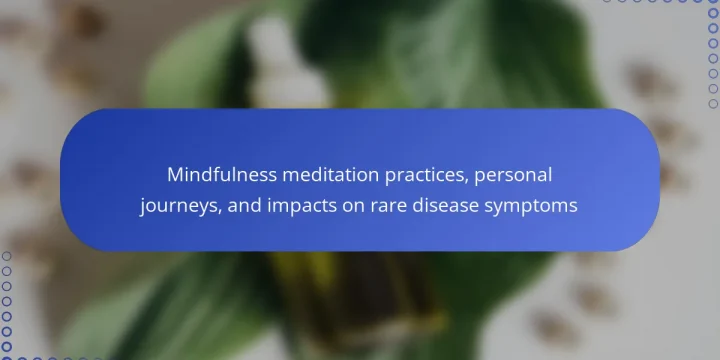
Herbal medicine offers potential remedies for managing rare diseases through natural approaches. This article explores holistic assessment, the application of traditional knowledge, and the importance of scientific validation. It also examines various preparation methods and their impact on efficacy. Understanding these elements can enhance the integration of herbal treatments with conventional healthcare. What are the core principles of herbal medicine for rare diseases? Herbal medicine for rare diseases emphasizes natural remedies tailored to individual needs. Core principles include holistic assessment, traditional knowledge application, and scientific validation. Holistic assessment considers physical, emotional, and environmental factors. This approach ensures remedies address the entire person, not just symptoms. Traditional knowledge guides the selection of herbs, often based on historical use for specific conditions. Scientific validation is crucial for efficacy. Research supports the use…








